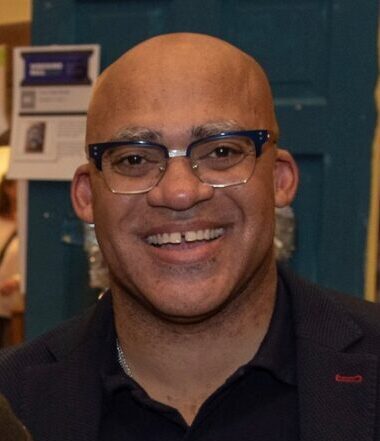When someone is diagnosed with a life-changing health condition, something shifts within. Each experience is different, but life is never the same, and one is forever changed. Some choose to stay hopeful and create change for others as they are going through their journey. This is true for Kevin Mott, financial adviser.
In 2002, Mott started having excruciating migraines. As a busy financial adviser, he wanted to succeed at work and continue his active lifestyle. He sought help from doctors, but found disappointing bias while trying to be treated.
The first doctor Mott saw diagnosed high blood pressure. The doctor gave Mott this advice: “The [blood pressure medicine] won’t work if I don’t cut back on fried foods and canned goods,” he recalled. But Mott takes his health seriously; he exercises regularly and enjoys fresh fruits and vegetables from farmers markets.
Mott changed doctors. “If your blood pressure is high and you’ve been doing cocaine a long time, it can interfere with the drugs,” doctor number two said.
Again, Mott found himself on the hunt for a doctor. His third attempt was met with: “If you are using steroids, this could be the reason that the medicine can’t work.”
Frustrated and in need of effective help, Mott called his HMO and found a doctor at a women’s clinic. It was here where everything changed for the better.
“The issue was similar. We couldn’t get my blood pressure down. The doctor’s response was different,” Mott said. She knew “with my active lifestyle, it shouldn’t be hard to control my blood pressure. She suggested that I see a nephrologist.”
Mott took tests and had a biopsy. He was diagnosed with focal segmental glomerulosclerosis (FSGS), a disease that attacks the kidney’s filtering units. This causes serious scarring, which can lead to kidney damage and failure.
Mott was shocked. “Within two years from the diagnosis, you have to have a transplant or dialysis. If you do nothing you could die,” he said. But this life changing news didn’t dim his hopeful outlook. “I wanted to enjoy life and plan for things to go well,” he said. He also remembered seeing his mom and her positive outlook as she lived through her health challenges. “My mom had a lot of health issues and she had the best attitude.”
By 2015, Mott’s doctor suggested he start looking for a donor. He had a transplant in 2017 and never had to undergo kidney dialysis. When he started looking for a donor, he shared the news with five or six friends. A year later after sharing his diagnosis on Facebook, a friend from college donated a kidney.
As friends were offering to help, some revealing news was shared. “Two of my friends learned about some health issues that they had while going through the extensive physical to be a donor.”
Sharing the news, looking for a donor, and getting the support helped Mott’s outlook. “This was a great experience for me and my friends,” he shares.
Mott didn’t have to make a dramatic change to his lifestyle because everything was gradual, and though there were missteps by his first doctors, they caught his FSGS early. “My biggest change was the three-month recovery period, as well as some interactions with medications. You have to monitor your diet and what you eat. It is not difficult, but it is constant,” he said.
Mott encourages others to advocate for themselves when working with doctors and health care professionals. As he advocates for himself, he also advocates for others.
Mott is a board member of NephCure Kidney International, a non-profit organization with a mission to “accelerate research for effective treatments for rare forms of nephrotic syndrome, and to provide education and support that will improve the lives of those affected by these protein-spilling kidney diseases.”
His work with the organization allows him to speak, sit on panels, and communicate with doctors regarding research and treatments. It was at his first volunteer meeting at NephCure that he learned FSGS was a rare disease. Sharing his story, he also learned that two of his fraternity brothers at his alumni chapter had FSGS and they were all seeing the same nephrologist. This is why he also advocates for clinical trials. “If we are not participating, we are not involved in the research,” Mott said. “We can’t address the issues if we are not in the trials.
“Most people with FSGS, especially African American males, are dealing with people who are not experts in FSGS. There is no set protocol, which means your doctor will be trying different things.”
As Mott continues his advocacy work and his career as a financial planner, he also continues to live life to the fullest and meet challenges with a positive outlook.
He shares the following advice for those living with kidney disease:
- Be aware of what makes you happy and what stresses you out. Stress is the worst thing for you.
- Advocate for yourself and find a doctor you trust and one with whom you can communicate openly.
- Keep up a healthy lifestyle with proper diet and exercise.
—Yvelette Stines






